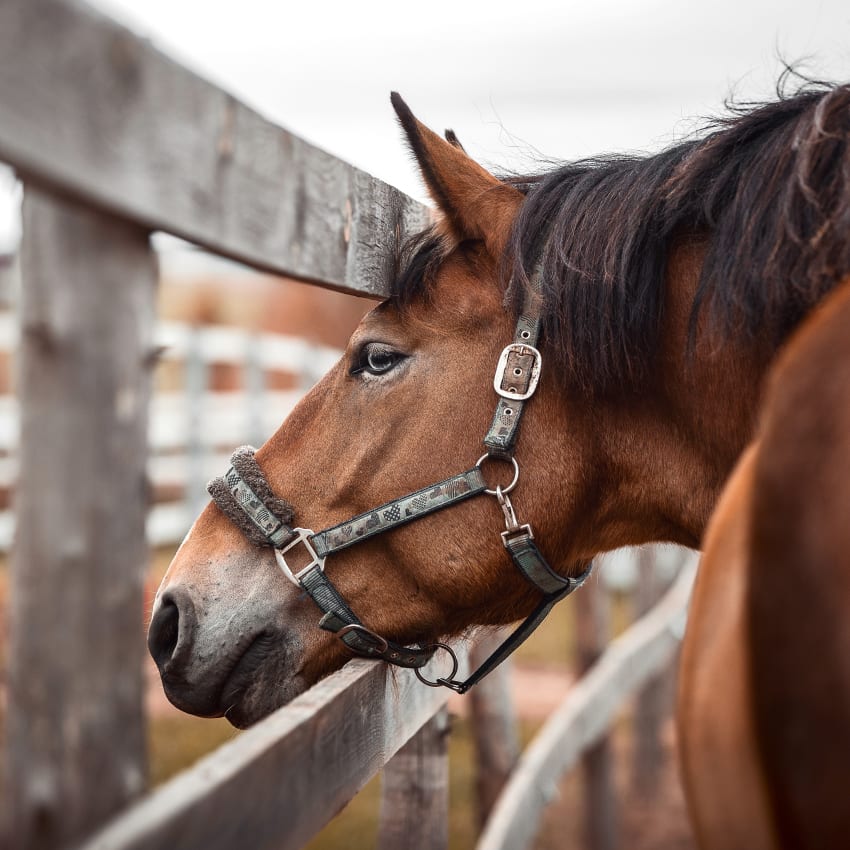Vet Surgical Services for Horses
At Western Veterinary Hospital we are equipped to offer a wide range of equine surgeries including castrations, laceration repair, mass removals, enucleations (eye removal), and many other procedures.
Our team practices the most stringent surgical protocols and believes that it is in our patient’s best interest to use a standing procedure whenever possible to help limit the risk of complications from anesthesia.

What to Expect With Vet Equine Surgery
We strive to keep you fully informed about why we are recommending a particular surgical procedure for your animal, what the projected recovery time will be and any post-operative care that your horse will need as they recover.
Horse Surgical Procedures at Western Veterinary Hospital
Our state-of-the-art equine veterinary facility is equipped with all the tools, technology and space our team needs to perform a wide range of medical and emergency surgeries to help treat disease and conditions in horses or to repair injuries sustained through trauma.
Our experienced equine vets routinely perform the following emergency, elective and non-elective surgeries to restore the health of horses from San Angelo and beyond:
- Soft Tissue and Colic Surgery
Soft tissue surgery includes surgery of the abdomen, urogenital tract, respiratory tract, mouth, and skin.
Colic and respiratory procedures are some of the most common soft tissue surgeries that we perform. Our vets are able to assess your horse's condition and offer surgical treatments if this is in the best interest of your horse's long-term health.
Our equine veterinary team is available during our clinic hours to carry out corrective colic surgery and intensive post-operative care which is vital for survival.
- Reproductive Surgery
A full range of reproductive surgical procedures can be carried out either at your farm through our ambulatory services, or for more complex procedures, by our specialist surgeons at our hospital. These include:
Mares: Cesarean section and other reproductive surgical emergencies are available along with the removal of endometrial cysts. Urogenital surgery, including Caslick's operation and other perineal surgery, ovariectomy, removal of granulosa cell tumors, ovarian hematoma, abscess or cysts, repair of uterine torsion, correction of foaling injuries, and removal of bladder stones.
Colts/Stallions: We perform castration and correction of inguinal hernias. We also offer urogenital surgery, including cryptorchid surgery (removal of retained testicle), removal of penile or testicular tumors, amputation of penis, and removal of bladder stones.
- Arthroscopy
Arthroscopy is a technique used by our Board Certified Equine Surgeon to evaluate and treat diseases within joints. Similar techniques are also used to evaluate and treat diseases within tendon sheaths and bursae.
An endoscope (a narrow, rigid instrument) is placed through a small incision in order to examine the insides of a tendon sheath, bursa or joint. This image will be transmitted to a camera for easy viewing.
Specially designed surgical instruments are passed through separate small incisions to assist in the treatment of disease within these structures.
- Laparoscopy
Endoscopic surgeries of the abdomen and thorax can be hugely useful for horses suffering from a variety of health issues.
It allows our vets to visualize and treat parts of your horse's abdomen and thorax (laparoscopy and thoracoscopy respectively) that would otherwise be difficult to access. This treatment method has a significant advantage: it is able to be performed while the horse is standing and with minimal incisions.
- Wounds
Wounds occur when living tissue has been cut, broken, burnt, torn, or otherwise damaged.
These wounds must be cleaned, disinfected, and appropriately cared for by a qualified veterinarian as soon as possible.
The Vet Surgery Process
The prospect of surgery for your horse may be somewhat overwhelming, but rest assured that we only recommend surgery when it's in the best interest of your animal. Our Board Certified Equine Surgeon and team Western Veterinary Hospital are trained to handle the complicated needs of equine surgery.
Standing vs. Traditional Surgery
Most large animal surgeries are performed on standing and awake patients to repair traumatic injuries like lacerations. Other common procedures are castration, reproductive surgery, endoscopic surgery of the upper respiratory tract, and minor hoof and lower leg procedures.
Recovery from general anesthesia is the single largest risk for horses after surgery, and standing surgery avoids most of those risks. Also, some surgical procedures are easier to perform on a standing patient. It is in the patient’s best interest to use a standing procedure whenever possible.
There are certain cases, however, where standing surgery can't be performed such as with colic surgery. Our veterinary team has extensive experience with equine surgery and will do everything they can to reduce risks.
New Patients Welcome
Western Veterinary Hospital is accepting new patients! Our experienced vets are passionate about the health of San Angelo companion animals. Get in touch today to book your pet's first appointment.

